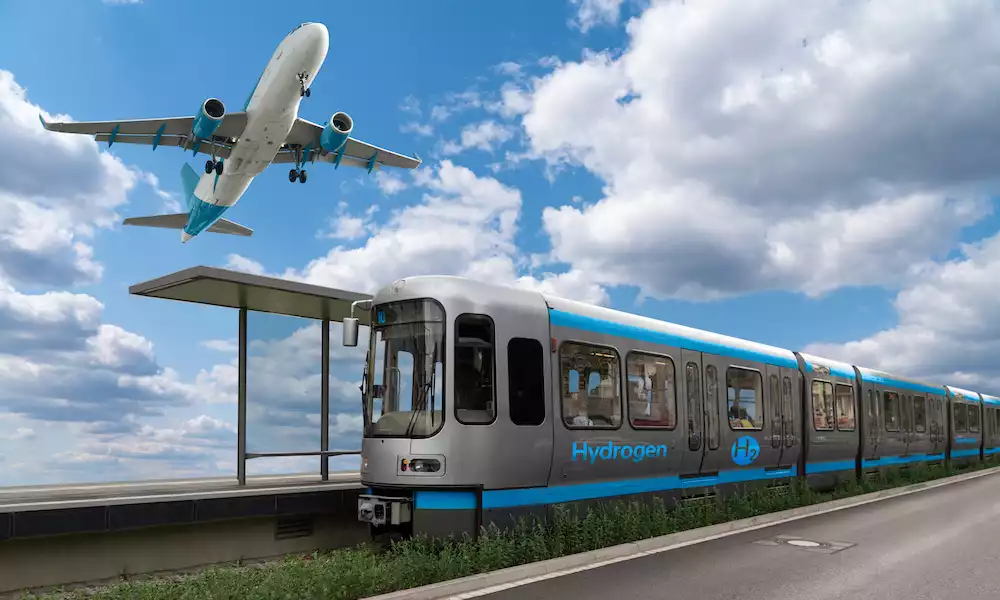Innovation
Ways To Make Your Hospitality Business Greener

Making a hospitality business greener is not only environmentally responsible but can also be cost-effective and appealing to eco-conscious customers. Statista says over 80% of travelers want sustainable tourism.
Businesses prioritizing eco-friendliness can enhance their public image, attracting environmentally-conscious customers and generating positive word-of-mouth marketing.
How eco-friendly is your hospitality business?
Making your tourism business green will require investment; however, not all actions you take need to be expensive. There are many easy and economical ways to become greener and, by doing so, realize cost savings and attract more customers.
This article will cover why your business needs to become part of the green tourism trend and provide a few sustainability strategies to implement immediately.
Why Eco-Friendly Travel?
The green movement has been with us for decades, and today, consumers expect businesses to be committed to sustainability.
The trend with service providers in industries like hospitality is to become certified with labels like LEED, Green Globe, EarthCheck, and so on. Travelers look for these certifications when choosing services like accommodation as they are indicators of a commitment to reuse, recycle, and reduce waste.
Increased Environmental Awareness
People are becoming more conscious of environmental issues, including climate change, pollution, and resource depletion. This heightened awareness has led many travelers to seek eco-friendly options in all their trips, including accommodation and dining.
Market Demand
Travelers are increasingly looking for ways to minimize their carbon footprint and reduce their environmental impact when they travel. They are not put off by higher travel costs as they want their travel experiences to align with their values, which often include sustainability and environmental responsibility.
Sustainable Travel
Travel is back to pre-Covid levels. In European hotspots, locals are fed up with their beaches, streets, and eateries being overrun by tourists.
Governments may be forced to take action to reduce the crowds and environmental impact, particularly in famed locations. For example, restrictions on travel, including curfews and shorter visas. Governments may also insist businesses reduce their environmental impact and become carbon neutral.
Many hospitality providers, including hotels, restaurants, and tour operators, have adopted environmentally-friendly practices. This includes initiatives like energy conservation, waste reduction, sustainable sourcing of ingredients, free shuttle service, and more.
It’s A Win For Business
Businesses prioritizing eco-friendliness can enhance their public image, attracting environmentally-conscious customers and generating positive word-of-mouth marketing.
Some eco-friendly practices, such as energy-efficient lighting and heating systems or reducing water usage, can also save business costs. These savings can sometimes be passed on to customers, making eco-friendly options more attractive.
Easy Ways To Become Greener
Greening your hospitality business is an ongoing process. By gradually implementing the following measures, your business will improve energy efficiency, water use, waste reduction, and more.
Energy efficiency
Replace incandescent bulbs with energy-efficient LED lighting throughout your establishment.
Either install programmable thermostats to regulate heating and cooling systems more efficiently or upgrade your lighting and designs so your business can use automation software with sensor activation. Also, upgrade to Energy Star-rated appliances.
Consider investing in solar panels or other renewable energy sources to power your business. Improve insulation and upgrade windows to reduce heating and cooling needs. If possible, install a green roof to help with insulation and stormwater management.
Regular maintenance
Ensure all HVAC systems, equipment, and appliances are well-maintained to maximize energy efficiency.
Replace old technology and systems that are not energy efficient.
Reduce water consumption
Install low-flow faucets, showerheads, and toilets to reduce water usage. Consider implementing water recycling systems for laundry, kitchen, and irrigation. Ask guests to let you know when they want their bedding and towels replaced. For example, it is now standard practice for accommodation providers to request their card be placed on the bed.
Waste reduction
Implement a comprehensive recycling program for guests and staff. If applicable, set up composting systems for food waste. Minimize single-use plastics and opt for reusable or biodegradable alternatives for toiletries and packaging.
Encourage green transport use
Provide a free shuttle to drop off and pick up from the nearest train station. On a recent visit to Malaysia, the greenest option to the city center was the train. The KLIA Ekspres to the city center takes 28 minutes, and 50 million cars off the road every year!
using the airport express train
Summing Up
Remember that greening your hospitality business is an ongoing process. Train your staff about eco-friendly practices and the importance of sustainability. Involve your employees in sustainability initiatives and seek their input for improvement.
Provide guests with information about your green initiatives and encourage them to participate. Offer incentives to guests who choose eco-friendly options, such as discounts or loyalty rewards.
Regularly monitor your energy, water, and waste consumption and set goals for improvement. Share your sustainability achievements and goals with guests and stakeholders.
By gradually implementing these measures and involving your staff and guests in your sustainability efforts, you can reduce your environmental impact while potentially attracting a more environmentally conscious customer base.






